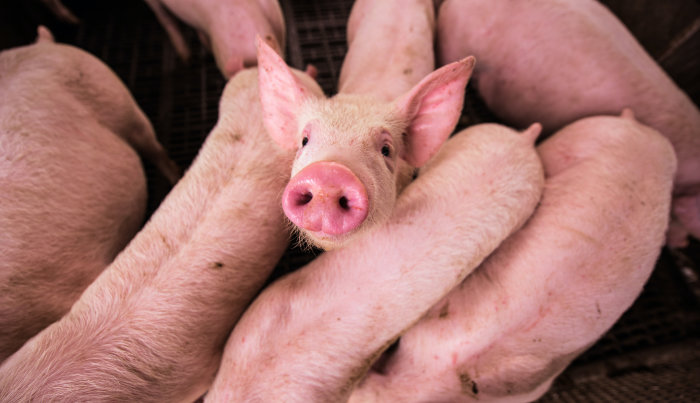Taxis in Thailand have been repurposed as giant planter boxes in our weird, post-COVID world. Hey, when life gives you [no use for taxis because tourism plummeted], you make [gardens].
Google maps will help you track fires and tree canopy coverage. These new layers are helping to track and visualize the impact of global warming. And they’re useful in a practical way, too.
Supply chain workers warn of logistics system collapse. If you’d like an in-depth breakdown of the factors involved in the scarcity we’re seeing, see Josh Center’s new post on supply chain disruption.
Dollar Tree is raising prices above $1. This is not good news. Like the Big Mac Index, the price of goods at stores like Dollar Tree are informative economic gauges.
USPS says snail mail will be even more snaily starting this Friday. Small packages will take longer to deliver over the holidays as “time in transit” windows are lengthened.
African Swine Fever is a serious threat to the US pork industry. The USDA is acting to try to prevent contagion in US pigs after Haiti and the Dominican Republic confirm outbreaks in pigs.
Factory activity in China has declined as electricity woes continue.
The world has 234.5 million COVID cases. The world has gained 3.2 million cases in the last seven days. There have been nearly 4.8 million deaths in total. The US has had a cumulative 44.3 million cases—over 780,000 cases were added in the last seven days. Over 716,000 Americans have died—over 11,800 in the last week. The US added over 123,000 new cases on Wednesday and over 2,200 deaths that day as well. The US is still leading global daily case gain.
COVID is causing the biggest drop in life expectancy in Americans we’ve seen since WWII. American men have suffered the greatest losses of those in any developed nation. American men in the US have lost 2.2 years of life expectancy relative to pre-COVID times.
Pfizer has submitted its data to the FDA on COVID vaccines for children aged 5-11. It’s possible children in this age group could receive the vaccine before Halloween—EUA is still pending. Children in this age group are given a smaller dose of vaccine than those aged 12 and up.
Anti-COVID mitigation measure protests are still happening all over the world—this particular set in Barcelona started as 40,000 people engaged in various street parties–local cultural celebrations. The parties turned violent when officers tried to stop the sale of alcohol past 11pm. Folks are arguing for the lifting of restrictions on nightlife to avoid future clashes like these:
Violence breaks out at Barcelona drinking gathering at the street that attracted 40,000 people, mostly around 20 year-old, violating all Covid restrictions. Cars and motorcycles were set alight, 34 people were injured and 22 arrested https://t.co/hiNcUwOt31
— Alfons López Tena 🦇 (@alfonslopeztena) September 27, 2021
Flu is starting to pick back up again:
After RSV, is it now time for influenza to come back? https://t.co/FTd6V5dgGg pic.twitter.com/evoiEbAaYp
— Mathieu Bangert (@BangertMat) September 29, 2021
Most countries are experiencing a significant decline in Delta-driven COVID cases. Let’s hope this is the last significant wave, and let’s help under-vaccinated countries get vaccinated so we don’t have to go through this again:
Descending from Delta. This is as good as the world has looked in many months@OurWorldInData pic.twitter.com/0vEYnFBQHY
— Eric Topol (@EricTopol) September 29, 2021
As far as the US goes, Alaska is now feeling the COVID burn:
Alaska now has the highest case per capita of any state at any time during the US pandemic pic.twitter.com/Q8i61izCxO
— Eric Topol (@EricTopol) September 29, 2021


You are reporting the comment """ by on